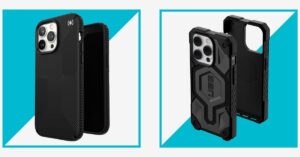The Internet of Things (IoT) has become more than a buzzword; it’s a driving force behind digital transformation. According to IoT Analytics, there willover 17 billion connected devices worldwide in 2025, and businesses are among the top adopters. From real-time supply chain tracking to predictive equipment maintenance, IoT applications are revolutionizing how organizations operate. This blog explores how IoT apps enable smarter business operations, streamline processes, and create measurable advantages across industries.
The Rise of IoT in Business
IoT applications are reshaping how enterprises collect, analyze, and use data. By embedding sensors and connectivity into machines, vehicles, and everyday objects, businesses gain a constant flow of real-time insights.
Key Trends Driving IoT Adoption
-
Data-Driven Operations: Companies rely on IoT data to monitor efficiency and reduce downtime.
-
Edge Computing: Processing data closer to devices reduces latency and improves responsiveness.
-
5G Networks: Faster, more reliable connections support large-scale IoT deployments.
-
AI Integration: Machine learning and IoT together enhance predictive decision-making.
How IoT Enhances Operational Efficiency
IoT apps directly impact productivity and resource optimization.
Real-Time Asset Tracking
Connected sensors allow companies to track shipments, equipment, and vehicles in real-time, reducing losses and improving logistics efficiency.
Predictive Maintenance
IoT-powered predictive analytics can alert teams before equipment fails, preventing costly disruptions.
Process Automation
From smart warehouses to automated manufacturing, IoT reduces manual intervention while enhancing accuracy.
Energy Optimization
Smart sensors monitor energy use, helping organizations cut costs and support sustainability goals.
IoT in Supply Chain and Logistics
The supply chain has long been plagued by inefficiencies. IoT is providing solutions.
Benefits for Supply Chain Managers
-
End-to-end visibility across suppliers, warehouses, and customers.
-
Temperature and humidity monitoring for sensitive goods.
-
Reduced theft and misplacement through GPS-enabled trackers.
-
Faster response to disruptions through real-time alerts.
IoT and Workforce Management
IoT apps also extend to managing people and work environments.
Smart Workspaces
Sensors optimize lighting, air quality, and desk usage, improving both productivity and employee well-being.
Safety Monitoring
Wearable IoT devices track worker health indicators and ensure compliance with safety protocols in high-risk industries like construction and mining.
Task and Time Optimization
IoT-driven apps monitor equipment usage and employee activities, making workforce planning smarter and more transparent.
Industry-Specific Use Cases
IoT’s versatility makes it valuable across multiple industries.
Healthcare
Remote patient monitoring and smart medical devices enable doctors to make data-driven decisions while improving patient care.
Manufacturing
Factories use IoT to monitor equipment health, automate quality checks, and minimize downtime.
Retail
Connected shelves and inventory management systems prevent stockouts and improve customer satisfaction.
Agriculture
Smart irrigation, soil sensors, and livestock monitoring enhance yield while conserving resources.
The Role of Mobile Applications in IoT Ecosystems
IoT apps are the bridge between devices and end-users. Businesses increasingly require mobile solutions to interact with their IoT infrastructure.
For instance, a manufacturer may use a mobile dashboard to monitor factory equipment remotely, while a logistics manager can track shipments on the go. In such scenarios, even enterprises seek professional expertise such as a mobile app developer atlanta to integrate IoT systems with intuitive mobile applications tailored to specific business needs.
Challenges in Implementing IoT Apps
While the benefits are significant, businesses must also overcome challenges to maximize IoT’s potential.
Security Concerns
Data transmitted between devices and apps must be protected against cyber threats.
Interoperability
Integrating devices from different vendors can create compatibility issues.
Scalability
Businesses must plan IoT solutions that grow with their needs.
Cost Management
Upfront costs for sensors, connectivity, and app development can be significant, though long-term ROI is often high.
Future Outlook: Smarter, AI-Driven IoT Apps
The future of IoT apps lies in their fusion with artificial intelligence and advanced analytics. AI-powered IoT ecosystems will not just track data but autonomously make decisions, further reducing human intervention. From autonomous fleets to adaptive manufacturing lines, smart IoT apps are set to transform industries into highly responsive, self-optimizing systems.
Conclusion
IoT apps are redefining the business landscape by enabling smarter operations, cutting costs, and unlocking new revenue streams. From predictive maintenance in manufacturing to smart logistics in retail, the potential of IoT is limitless. Businesses that invest in IoT today are setting the stage for a more connected, data-driven, and efficient tomorrow.
FAQs
1. How do IoT apps improve business efficiency?
IoT apps collect real-time data from connected devices, allowing businesses to monitor assets, reduce downtime, and automate processes, ultimately boosting productivity.
2. What industries benefit most from IoT apps?
Industries like healthcare, logistics, manufacturing, retail, and agriculture gain the most, thanks to applications ranging from patient monitoring to smart farming.
3. Are IoT apps secure for business use?
Yes, but security depends on implementation. Strong encryption, device authentication, and regular updates are essential for keeping IoT ecosystems safe.
4. Can small businesses also leverage IoT apps?
Absolutely. Affordable IoT solutions are available for SMEs, such as smart inventory systems, connected POS devices, and energy monitoring tools.
5. What is the future of IoT apps in business?
IoT apps will increasingly integrate with AI, blockchain, and 5G to enable smarter, faster, and more autonomous decision-making in every industry.
6. What role do mobile apps play in IoT adoption?
Mobile apps act as the interface between businesses and IoT devices, enabling managers and employees to access real-time data and control connected systems anywhere, anytime.







